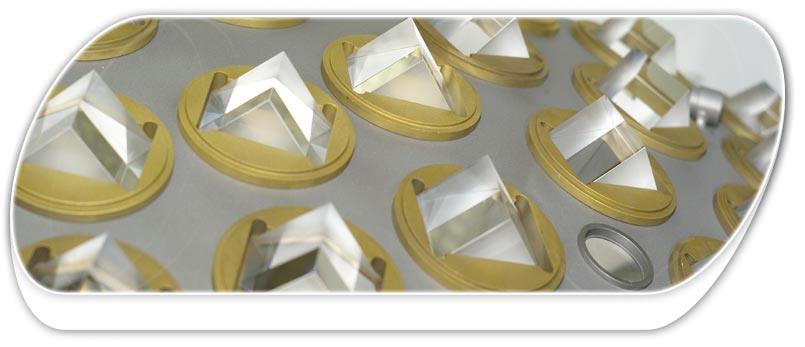



Products
Beam splitters
The following coatings are available:
- polarizing beam splitters, uncemented (narrow band e.g. for 45° or 57°) or cemented (narrow and wide band e.g. for 45°)
- non-polarizing beam splitters, uncemented
(narrow band e.g. for 22.5° or 45°) or cemented (narrow band e.g. for 22,5° or 45°) - weakly polarizing metallic beam splitters, cemented or uncemented
- dichroic beam splitters, cemented or uncemented
- broad band beam splitters, cemented or uncemented
- beam splitters for one or multiple wavelengths with various splitting ratios, cemented or uncemented
- beam splitters with multiple function ranges, cemented or uncemented
- custom beam splitters according to customer requirements
Nearly all types of mineral glass and crystal are suitable for coating.
The substrates are usually supplied by the customer.
If required, beam splitters can also be offered as complete solutions.
![]()
Coatings are deposited using conventional (e-beam) or
ion plating technology, depending on the specifications:
Properties
Conventional (e-beam)
- wavelength range 0.24 µm to approx. 2 µm
- high laser damage thresholds
- low absorption (except metallic splitters)
- low stress layer
- suitable for sensitive substrates
- economical production
Properties
Ion Plating
- wavelength range 0.19 µm to approx. 5 µm
- for extremely demanding optical requirements (for example exact splitting ratio or high transmission in transparent region etc.)
- long-term stability of optical and mechanical coating properties regardless of environmental influences (e.g. temperature, pressure, radiation etc.)
- suitable for demanding substrate surface flatness specification (achieved with compensation coating on rear with any desired optical function. Prerequisites: coplanar substrate, polished on both sides)
- extremely low absorption and scatter losses
- gas and water-free coatings for maximum performance, especially in NIR range (e.g. 2.94 µm)
- highly resistant to thermal stress (up to 550°C on quartz glass or sapphire)
- suitable for extreme environmental conditions (e.g. space qualified, salt water resistant) and large mechanical stresses (extremely hard and abrasion resistant)





